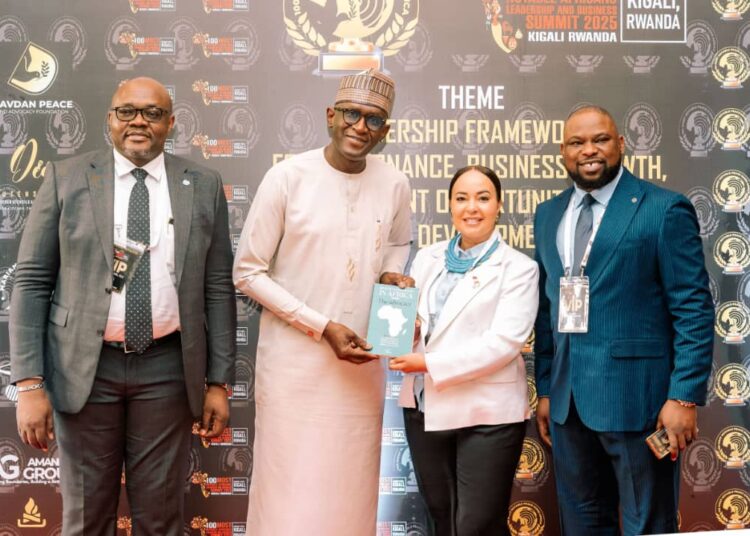The 2025 edition of the 100 Most Notable Africans Leadership and Business Summit has ended in Kigali with a clarion call for African leaders, investors, and innovators to take ownership of the continent’s economic destiny by deepening intra-African trade and harnessing local resources for sustainable development.
The high-profile gathering, which drew dignitaries, policymakers, business executives, and development advocates from across Africa and beyond, centred its discourse around the urgent need to liberalise trade across the continent through effective implementation of the African Continental Free Trade Area (AfCFTA).
Speakers at the summit emphasised that Africa has what it takes to build its own economic empire from abundant natural and human resources to a large, youthful population and must stop depending on foreign aid to solve local challenges.
In his keynote address, Amb. Dr. Kingsley Amafibe, Project Director, 100 Most Notable Peace Icons Africa, described AfCFTA as a transformative platform that connects over a billion Africans in a single market, enabling countries to complement one another’s strengths.
“This summit offers an avenue for industrialists, political leaders, and policymakers to forge meaningful collaborations that can reshape Africa’s future. We must move from competition to cooperation,” Amafibe stated, speaking on the theme “Shaping Africa’s Future Through Collaboration and Partnership.”
Opening the event, Amb. Ibrahim Zanna, Nigeria’s High Commissioner to Rwanda, underscored the importance of leadership and strategic partnerships in creating a resilient African economy. He encouraged nations to break down existing trade barriers and act with a united vision for prosperity.
Representing the Governor of Jigawa State, Nigeria, Prof. Haruna Musa, Executive Chairman of SUBEB, delivered a compelling message on food security. Speaking on “Food Security: A Catalyst for Galvanizing Positive Change and Enshrining Tranquility in Africa,” Prof. Musa said agriculture remains Africa’s greatest tool for driving industrialisation, reducing poverty, and boosting exports.
“It is concerning that a continent so rich in arable land still imports food,” he said. “In Jigawa, we are making massive investments in agriculture to reposition it as both a food security and export agenda.”
Other distinguished speakers included Prof. GD Singh, founder and chairman of the Asian African Chamber of Commerce & Industry and World Peace Diplomacy Organisation, and Dr. Imane Kendili*, Psychiatrist and CEO of African Global Health, Morocco. Both joined calls for African governments to wake the “sleeping giant” of intra-continental commerce, innovation, and production.
Also present were Rt. Hon. Dennis Idahosa, Deputy Governor of Edo State; Dr. Sa’adatu Adamu, President of the Psychotherapeutic and Counselling Research Institute; Dr. Daniel Moses, Founder of Property Wealth Corporation UK; and Prof. Nicaise Ndembi, Deputy Director General at the Institute of Human Virology, University of Maryland School of Medicine.
They were joined by a wide range of speakers including Malik Shaffy Lizinde (Founder & CEO, 63 Inc.), Dr. Chuka Nwachukwu, Engr. Dr. Chinedu Ogwus, Dr. Femi Joshua, Dr. Michael Odere, Emmanuel Uduh (Commissioner for Finance, Cross River State), Amb. Daniel Obah, Ruqayya Tofa-Basheer, Aisha Adamu Rufai, and others who echoed the message of regional unity and African-led growth.
The summit’s overarching message was clear: Africa’s economic transformation must be owned and driven by Africans. With the right leadership, policy consistency, and intra-continental collaboration, the continent can build resilient economies, reduce dependence on foreign aid, and achieve inclusive prosperity.











